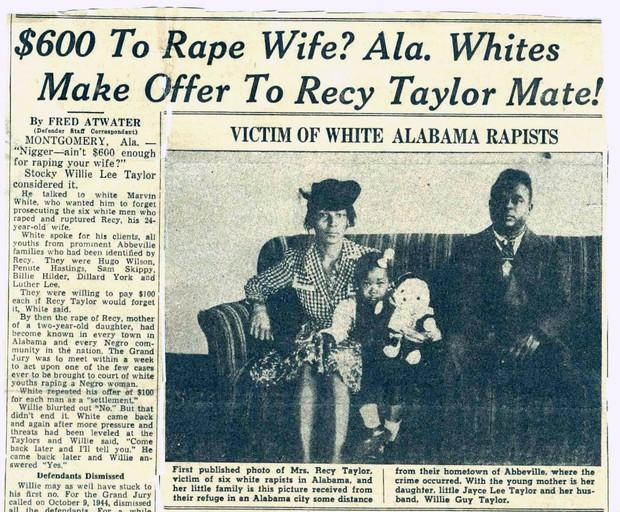She sought justice for Recy Taylor
Rosa Parks' remarkable achievement is she sought justice for Recy Taylor.
On September 3, 1944, after midnight, six white male assailants stopped Recy Taylor, Fannie Daniels, and West Daniels on their way home from church in Abbeville, Alabama. Taylor was identified by the assailants, who stated she was sought for a crime. Taylor had spent the entire day with the Daniels and hence could not have been involved in the crime as they alleged. They grabbed Taylor, transported her to a remote location, and raped her at gunpoint. They left Taylor to wander home blinded after the attack. Taylor was discovered by her father and a deputy sheriff; she then described the automobile to the officer. Hugo Wilson was recognized as the driver by the Sheriff's Department and arrested. Wilson identified the other guys engaged in the assault and was released by the Department. Taylor and her husband sought charges, but the case was rejected by an all-white grand jury on October 4, 1944.
After hearing of Taylor's assault, Rosa Parks came to Abbeville, Alabama in 1944. Parks agreed to meet Recy Taylor, her husband, and her daughter at a remote cabin because of the fear of police interference. Parks documented Taylor's notes of the attack and delivered them to African-American activists in Montgomery when Deputy Sheriff Lewey Corbitt stopped their covert meeting. Rosa Parks teamed with the Southern Negro Youth Congress to publicize Taylor's case, drawing on years of engagement in which she supported the Scottsboro Boys, battled against the Ku Klux Klan, and joined the NAACP.
Rosa Parks formed the Alabama Committee for Equal Justice for Mrs. Recy Taylor's Rights with the support of E.D. Nixon (the Head of the Alabama Brotherhood of Sleeping Car Porters), Rufus A. Lewis (funeral home director and Alabama State football coach), and E.G. Jackson (editor of the Alabama Tribune). By 1945, the case had acquired national attention, and the committee had created sections in New York, Denver, Chicago, and Detroit.











